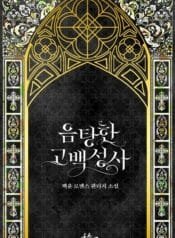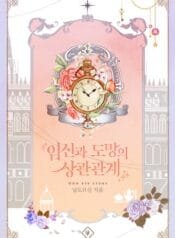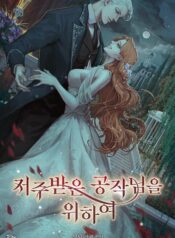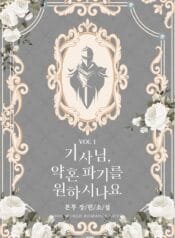The sword he carried at his waist was not often used for slashing. Instead, Ah-shin preferred to wield it as a blunt instrument, crushing and pulverising his enemies. Although the blade itself was razor sharp, he rarely bothered to unsheathe it. Instead, he used the sheathed sword to shatter bones – most often the skulls of his opponents, but sometimes their ribs or spines.
When he drew his sword, it was to sever heads in one swift, clean blow. Ah-shin never needed to swing his blade more than once; a single stroke was always enough. His efficiency and brutality in battle, akin to a butcher slaughtering cattle with a single cut, earned him his grim title: Human Butcher.
“Since arriving here, I haven’t encountered anyone worth killing. It’s making my hands itch.”
Woo-gong stifled a shudder at the sound. Despite serving Ah-shin for five years, his presence still filled him with fear. Who wouldn’t be? Was there anyone alive who didn’t find Ah-shin utterly terrifying? If one were to name the most monstrous human being alive, Ah-shin would undoubtedly be at the top of the list.
“I’ll be back before sunset. Bring that woman to my quarters and leave her there.”
“Yes, Governor.”
Woo-gong replied, bowing respectfully.
“Hyah!”
With a sharp command, Ah-shin spurred his horse forward, galloping away without a second glance.
With only two escorts, Ah-shin rode out through the city gates. Woo-gong stood in place, watching until he disappeared from view before turning sharply on his heel.
“What are you standing around for?” he snapped at the nearby officials. “Didn’t I order the account books to be delivered before sunset? I won’t tolerate idleness!”
The officials of Gangseo’s provincial office were, in Woo-gong’s eyes, uniformly sluggish and inept—a level of incompetence he found utterly intolerable.
Nothing ever seemed to meet Woo-gong’s standards, and he knew exactly why: the previous Governor of Gangseo had been a soft-hearted man. When a leader lacked firmness, subordinates inevitably grew lazy, and discipline fell apart.
This was precisely why Woo-gong was determined to tighten the reins and restore order to the province’s administration.
“Will he return safely?”
But it wasn’t Ah-shin’s safety he was concerned about. No, what worried him were the unfortunate souls who might cross Ah-shin’s path.
Ah-shin was the kind of man who valued human lives less than those of ants. Compassion, humanity, or mercy—none of these existed within him. If someone displeased him, he wouldn’t hesitate to crush their skull with his bare hands, right then and there.
There was an incident back in the capital where an official, unaware of Ah-shin’s presence behind him, casually spat on the ground. The spit hadn’t even landed near Ah-shin’s feet, yet Ah-shin struck the man’s skull with a single blow, killing him instantly. His reasoning? He claimed the act had dirtied his sight.
Even after such a brutal act, no one dared to punish him.
Ah-shin was the Emperor’s uncle.
The current Emperor, only twelve years old, lived in constant fear. And how could he not? Though he wore the crown, he was surrounded by ten uncles – each as fierce as a tiger – all waiting for a chance to pounce. Not one of the capital’s nobles supported him.
The late Emperor, a tyrant, had executed anyone who opposed his rise to power, leaving his reign without allies or public support. As a result, when the young Emperor inherited the throne, there was no one to stand by his side or defend him.
His ten uncles, like wolves circling prey, hovered around the throne, ready to sink their teeth into it at the slightest misstep. Yet despite the odds against him, the Boy Emperor had managed to hold on to both his throne and his life – barely.
The reason the young Emperor still clung to power was none other than Ah-shin.
Ah-shin, the youngest of the Emperor’s uncles, was also the fiercest and most powerful of them. Even his older brothers, well aware of his formidable strength, were reluctant to make a move against the young emperor while Ah-shin was still in the picture.
However, Ah-shin’s protection wasn’t born of affection for the boy. It was simply that he had no desire to stain his hands with the blood of his kin.
Before his death, the late Emperor—Ah-shin’s father—had given him a single command: “Do not harm your own blood.”
As a father who understood his son’s wild and violent nature better than anyone, the late Emperor’s final words had been a plea for restraint. On his deathbed, he had grasped Ah-shin’s hand and made him swear to honor this wish.
To this day, Ah-shin had kept that promise. Regardless of the circumstances, he had never spilled the blood of his brothers or his nephew.
It was this very oath that had compelled Ah-shin to leave the capital and take up residence in the remote outpost of Gangseo Province.
Witnessing the state of the capital, Ah-shin had chosen to leave voluntarily, knowing that if he stayed, his uncontrollable temper might drive him to kill his brothers in a fit of rage. To curb his fiery nature, he decided to relocate to Gangseo Province of his own accord.
Even now, thousands of soldiers loyal to Ah-shin remained stationed in the capital. With a single word, he could replace the ruler of the land. Everyone, from the Emperor to his uncles, was fully aware of this and tread cautiously around him.
Ah-shin, however, appeared completely indifferent to such power struggles.
Woo-gong, however, was certain of one thing: Ah-shin would never ascend to the throne. Ah-shin despised inconvenience and burdensome responsibilities. Becoming Emperor would mean dealing with endless troubles, and Ah-shin, who went to great lengths to avoid such things, would never willingly claim the crown.
That didn’t mean Ah-shin lacked ambition. On the contrary, he possessed a strong sense of ownership. While he might choose to discard something that was his, he would never allow anyone else to take it from him.
Ah-shin had no hesitation in abandoning what no longer served him, but if someone dared to seize what belonged to him, it triggered a blinding rage. It was a line no one crossed without consequence.
In fact, the late Emperor’s death was indirectly linked to this very trait of Ah-shin’s. Officially declared a tragic accident, rumours whispered among a select few hinted at Ah-shin’s involvement. The late Emperor, who was said to have died from injuries sustained in a riding accident, had fallen as a result of an incident provoked by Ah-shin.
Ah-shin had never liked the late Emperor, who was his third eldest brother. By tradition, the throne should have gone to the eldest brother, not him – a fact that had always fuelled Ah-shin’s disdain.
Immediately after the late Emperor’s death, Ah-shin left the capital and the imperial palace to serve as guardian of his father’s tomb. It was customary for one of the Emperor’s children to take on this role for three years following his passing, and the honor was typically bestowed upon the most favored son.
Despite his wild and unruly nature, Ah-shin was deeply devoted and would never disobey his father’s wishes. So he volunteered to take on the responsibility himself.






